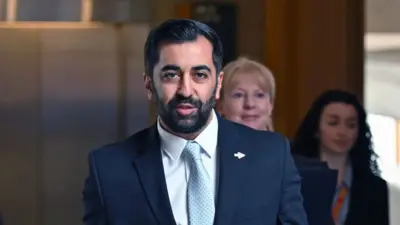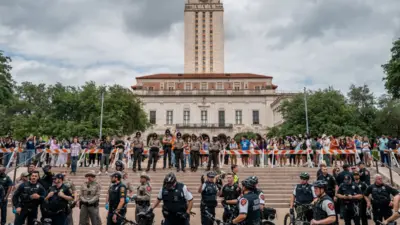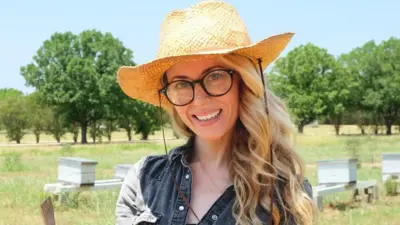We've updated our Privacy and Cookies Policy
We've made some important changes to our Privacy and Cookies Policy and we want you to know what this means for you and your data.
Natasha Abrahart suicide: Parents call for universities to change
- By Jon Kay
- BBC News correspondent
Image source, Family handout
The parents of a woman who took her own life have called for universities to take better care of their students.
Natasha Abrahart, 20, was in her second year at the University of Bristol when she took her own life in April 2018.
Parents Robert and Margaret Abrahart, from Nottinghamshire, are taking civil action against the university on the grounds it did not make adjustments for her social anxiety disorder.
The university said it did its best for students struggling with mental health.
A judgement in the case is due to be delivered on Friday.
Speaking ahead of the judgement, Mrs Abrahart said the couple, who live in West Bridgford, were on tenterhooks.
Image source, Family picture
"The decision to us is so important, for all the other students that are like Natasha," she said.
"My focus is what happens next. If nothing changes as a result of the court case, there was no point doing it.
"This needs to be a catalyst to shake the university system up into doing something that will make sure that they take better care of their students."
Miss Abrahart was studying physics when she was diagnosed with chronic social anxiety in February 2018.
Mr and Mrs Abrahart accused the university of discriminating against her as a disabled student under the Equality Act.
During the hearing, earlier this year, Bristol County Court heard she suffered with "debilitating shyness" and did not attend laboratory interviews and oral assessments as part of her course.
On the day she was found dead, she was due to speak at a presentation in front of fellow students and staff in a large lecture theatre.
She was one of a number of students at the university to take their own life since October 2016.
'Student blaming'
The court also heard changes had since been made to the university's disability services.
Speaking prior to the ruling, Mr Abrahart criticised the university authorities for avoiding responsibility.
"We have spent four years bringing a court case to say this needs fixing and instead of fixing it, we get secrecy, student blaming," he said.
"There's no self-criticism. They're not accepting there's any problem, so they're not fixing it. It's an insult to everybody, as well as potentially dangerous to somebody like Natasha."
The university said Miss Abrahart had a range of complex issues - many "not related to her studies" - which existed before she started university.
It also said staff had been "instrumental" in helping her access professional mental health support at Avon and Wiltshire Mental Health Partnership (AWP). During Miss Abrahart's inquest, AWP acknowledged there had been failings in the care it provided.
The university added: "A large part of the court case focussed on the group presentation Natasha was due to take part in the day after she passed away.
"The efforts of colleagues included offering alternative options for Natasha's assessments to alleviate the anxiety she faced about presenting her laboratory findings to her peers.
"We would like to acknowledge and recognise the immense commitment of our staff to support Natasha, and all students.
"We are by no means complacent - mental health is one of the biggest public health issues affecting young people globally, not just those studying at university.
"Like all universities, schools and colleges, we are deeply concerned by the increase of mental health issues amongst our young people nationally.
"We do our very best to support any student who is struggling with their mental health and have a wide range of services available. However, it is important that students receive appropriate specialist care under the NHS."
If you have been affected by any of the issues in this story, you can visit the BBC's Action Line.
Follow BBC East Midlands on Facebook, Twitter, or Instagram. Send your story ideas to eastmidsnews@bbc.co.uk.
Top Stories
Features & Analysis
Most read
Content is not available








